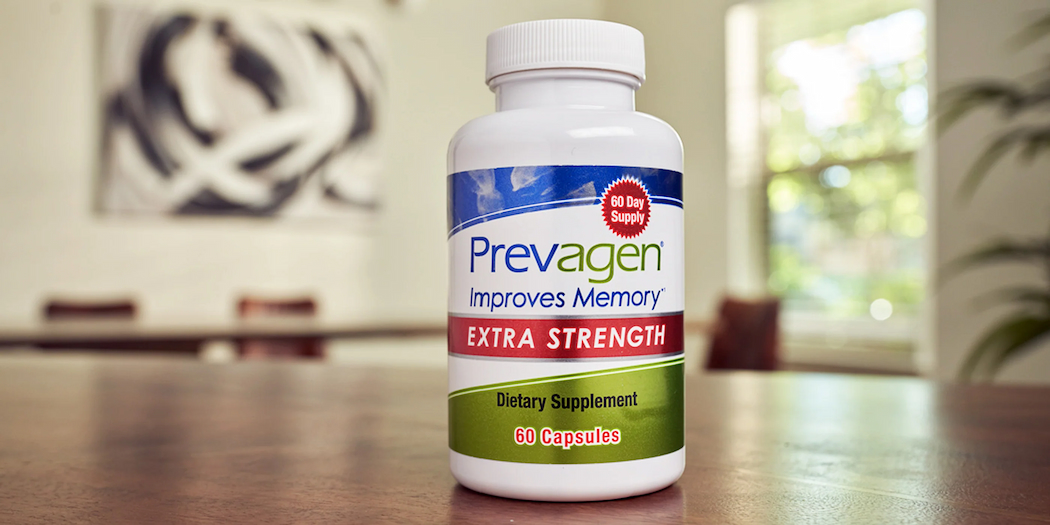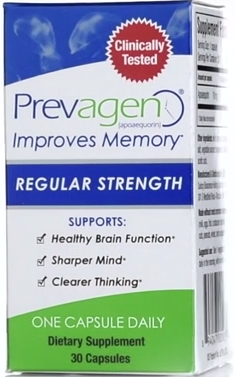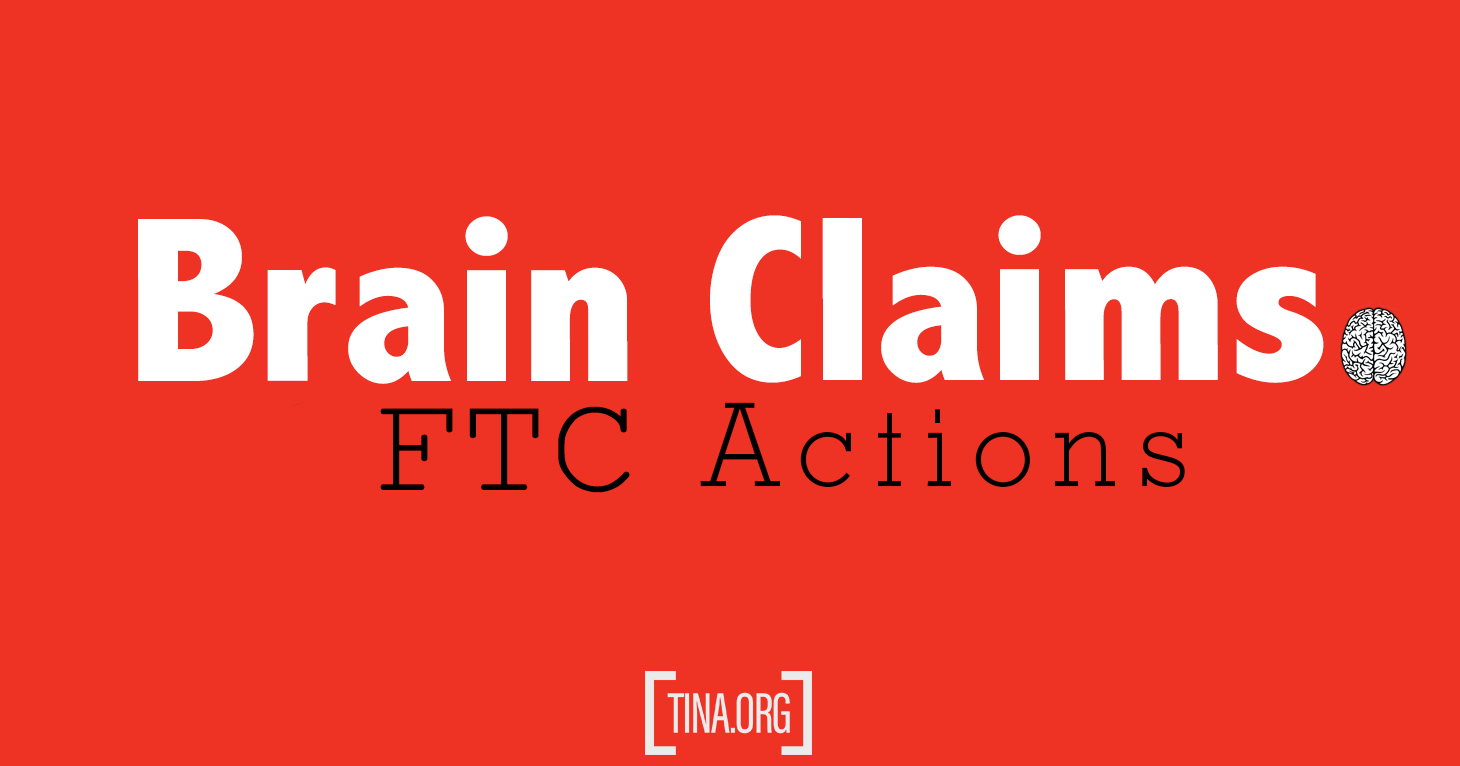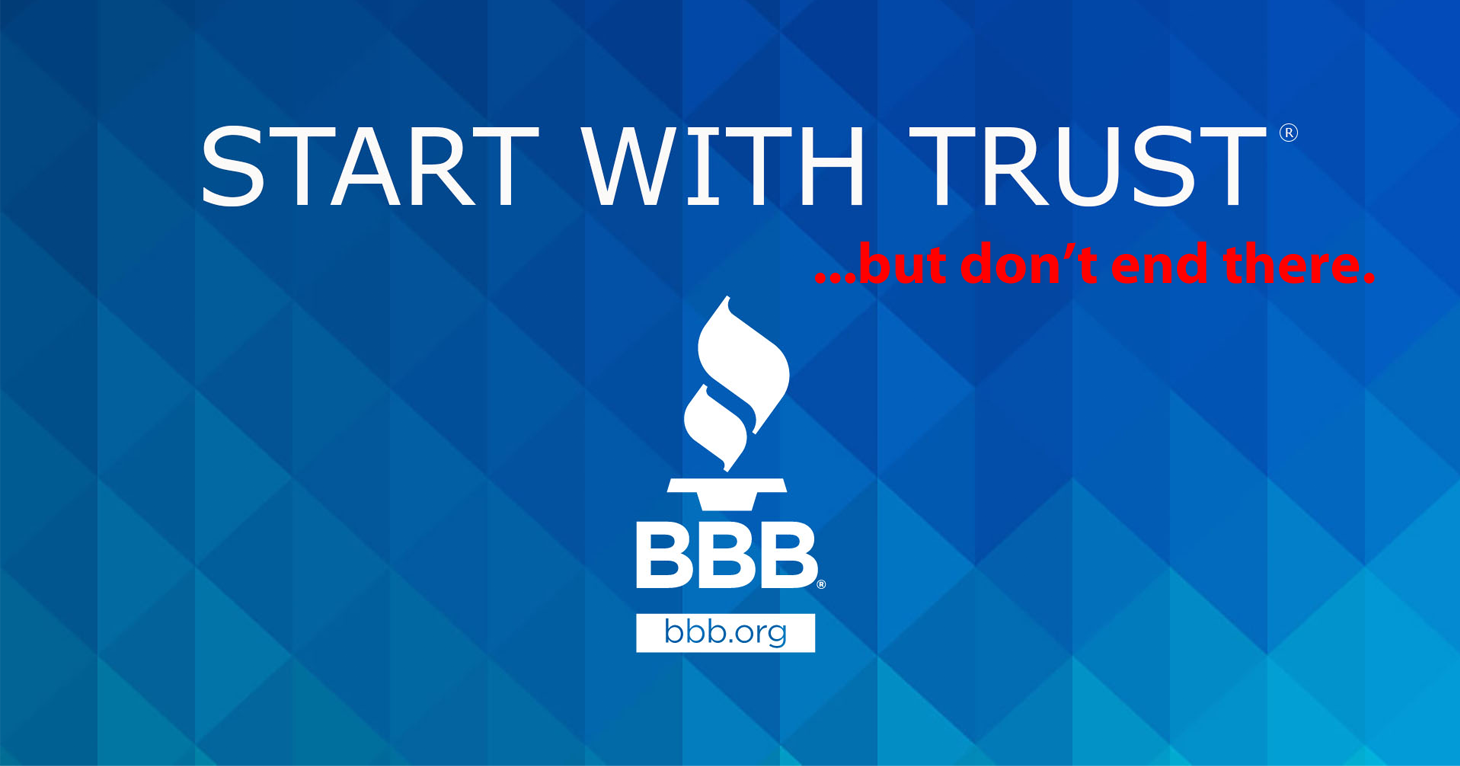
Jury Hands Down Verdict in Prevagen Deceptive Marketing Case
Verdict comes nine years after TINA.org alerted regulator to supplement’s unsubstantiated health claims.
TINA.org also calls on the BBB to re-evaluate company's A+ rating.
|
Editor’s Note: Updates have been posted at the end of this article.
TINA.org has put five major TV networks on notice regarding widespread commercials for Prevagen, a purported brain supplement whose unfounded claims to improve memory in 90 days prompted TINA.org to file a deceptive advertising complaint with the FTC last summer.
In letters sent out Tuesday to ABC, NBC, FOX, The Weather Channel and Turner Broadcasting System (which airs Prevagen ads on CNN and HLN), TINA.org wrote (emphasis added):
(T)here is absolutely no competent or reliable scientific evidence to support such an incredible health and treatment claim (that Prevagen improves memory), which means that Quincy Bioscience LLC, which markets and sells Prevagen, is airing deceptive commercials on your network to the detriment of your viewers.
The deceptive claims appear to constitute violations of each network’s respective advertising guidelines. For example, ABC states that its policy is “to present advertising that is truthful, tasteful, and not misleading or deceptive. This policy is not only mandated by our obligation to operate in the public interest and by state and federal laws, but as a matter of good corporate citizenship.”
TINA.org also sent a letter Tuesday to the BBB calling on the organization to re-evaluate Quincy Bioscience’s A+ rating, which, TINA.org wrote, “gives consumers the mistaken impression that the company is honest and trustworthy when, quite simply, it is not. Such a positive rating by the BBB only adds to the deception.” Meanwhile, Quincy Bioscience touts its BBB accreditation on the Prevagen homepage.
 While sales of Prevagen have surpassed two million bottles since the product’s launch in 2007, a TINA.org investigation last summer found that Quincy Bioscience did not have reliable scientific evidence to support improved memory claims.
While sales of Prevagen have surpassed two million bottles since the product’s launch in 2007, a TINA.org investigation last summer found that Quincy Bioscience did not have reliable scientific evidence to support improved memory claims.
RELATED: 9 Deceptive Better Brain Claims
Part of the problem was that Quincy Bioscience paid for and authored all three studies on its website purporting to prove the cognitive effects of Prevagen, the key ingredient in which is said to be a synthetic protein originally plucked from a bioluminescent jellyfish found only in Puget Sound. Additionally, a nutrition expert who reviewed Prevagen’s claims and studies at the request of TINA.org concluded: “It is biologically inconceivable that taking a protein by mouth would have any effect on memory.”
TINA.org went to the FTC in September after formally notifying Quincy Bioscience of the misleading claims and failing to receive any response from the company. That complaint is pending. Last July, the marketers of another “memory pill” called Procera AVH agreed to pay $1.4 million to settle FTC allegations that they deceptively advertised that the supplement was clinically proven to reverse memory loss.
Though the FTC has never taken action against a network for the dissemination of a deceptive ad, FTC attorney Laura Sullivan said the agency “considers all parties that contribute to the deception.” If a network knew that the claims were bogus and still aired the ad, it could be found culpable, Sullivan said.
“We trust that now that the networks have been made aware of the issue, they will initiate a review and vet ads more carefully in the future to protect their viewers from deceptive advertising,” said TINA.org Executive Director Bonnie Patten.
In response to TINA.org’s letter, FOX pledged to look into the issue, ABC requested that TINA.org keep the network apprised of any updates related to regulatory action, and Turner Broadcasting System said it notified Quincy Bioscience and will be investigating accordingly.
Read more about TINA.org’s legal action against Quincy Bioscience here.
UPDATES
11/20/20: A federal district court has approved a class-action settlement over claims that Quincy Bioscience falsely advertises that Prevagen can improve memory. TINA.org had objected to the proposed settlement on the grounds that the terms were unfair to consumers, who are only eligible to receive a maximum refund of $12 unless they kept receipts. The FTC and state of New York’s lawsuit against Quincy is pending. For updates on that case, click here.
1/10/17: TINA.org has alerted the networks to a federal lawsuit charging Quincy Bioscience, the marketers of Prevagen, with making false and unsubstantiated claims that the product improves memory, provides cognitive benefits, and is “clinically shown” to work. TINA.org also called on the BBB to re-evaluate its A+ rating of Quincy Bioscience in light of the suit. A day after TINA.org sent its letter, the BBB changed the grade to NR for No Rating.
This article was updated on 1/20/16 to include responses from FOX and ABC, and on 1/29/16 to include Turner Broadcasting System’s response.
Verdict comes nine years after TINA.org alerted regulator to supplement’s unsubstantiated health claims.
Since 1995, the FTC has brought nearly 70 actions over deceptive brain claims.
Researching a company shouldn’t be one-stop shopping.


